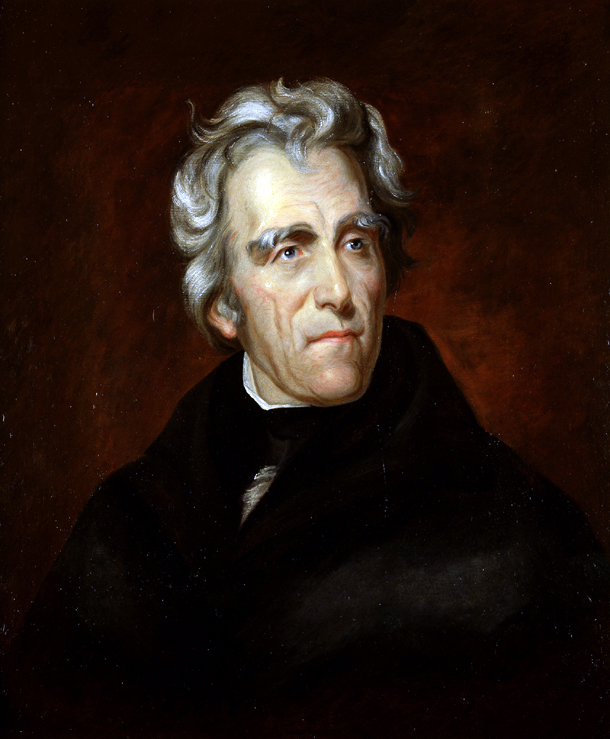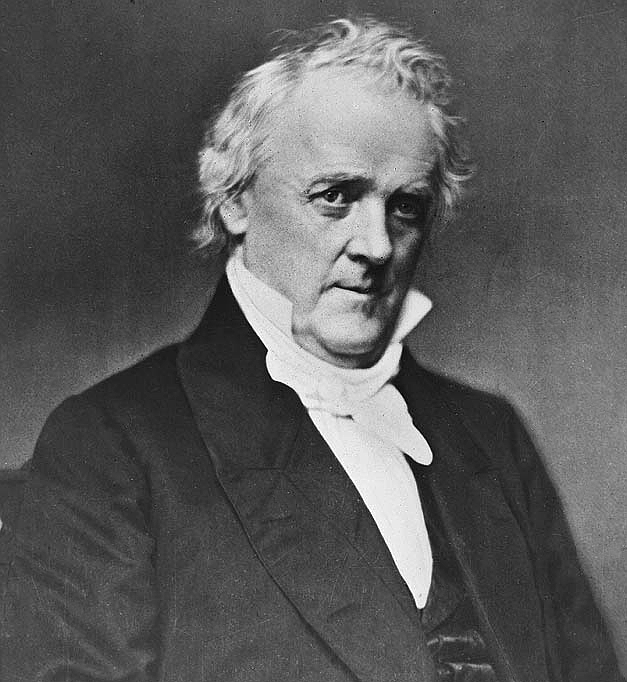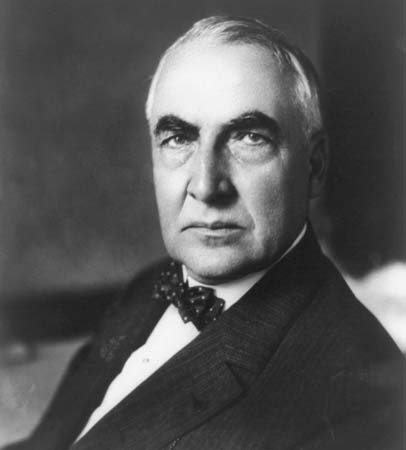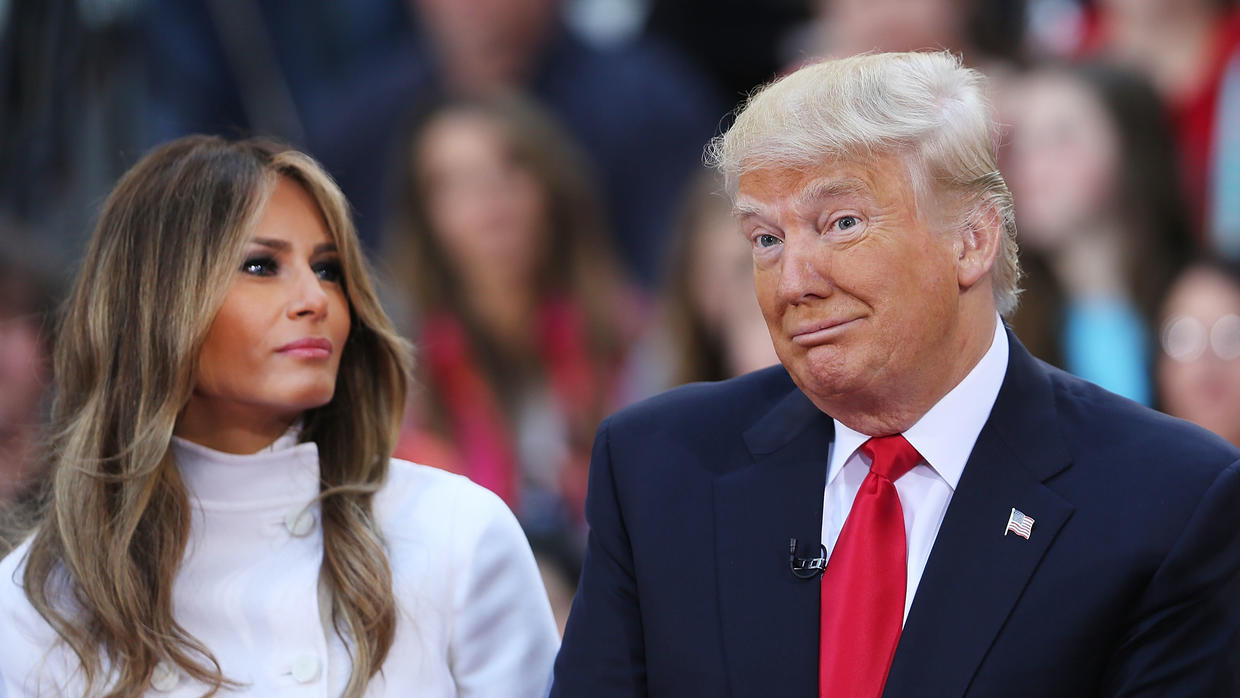I’ve fantasized about living in the White House since I was a kid. Not that I ever wanted to be president, I just really want to walk the halls and take in all the history, whether glorious, ignominious, or mundane.
I’m not gonna lie: it really disturbs me that the Trumps get to enjoy that special place. So I got to wondering who was the worst person to ever live in the White House?
There are certainly a number of candidates. Our seventh president was the first to spring to mind. As I thought about Andrew Jackson, some startling similarities between his time and ours sprung to mind.
I followed that Trump train of thought to which presidents he might most be like as his unlikely presidential term unfolds. Of course, we’ve never had a president like Trump with absolutely zero political or military experience, so it’s hard to know what the future holds.
But based on how he campaigned and what we’ve been shown about him, here are the four presidents I came up with in imagining the Trump presidency through my decidedly jaded eyes.
ANDREW JACKSON—7th U.S. President (1829-1837)
Andrew Jackson is one of the most recognizable presidents of all-time by virtue of being on U.S. twenty dollar bills. Too bad such a terrible man is honored in such a way. So what might Donald Trump and Andrew Jackson have in common?
 For a start, the recent campaign bears some resemblance to the Election of 1828 that put Jackson in office. That campaign is often considered one of the nastiest of all time, although 2016 will certainly give it a run for its money. Jackson ran against incumbent President John Quincy Adams, a former Secretary of State. Some of Adams’ surrogates called Jackson an adulterer, because when he married his wife Rachel years earlier they didn’t know her divorce had not yet been finalized.
For a start, the recent campaign bears some resemblance to the Election of 1828 that put Jackson in office. That campaign is often considered one of the nastiest of all time, although 2016 will certainly give it a run for its money. Jackson ran against incumbent President John Quincy Adams, a former Secretary of State. Some of Adams’ surrogates called Jackson an adulterer, because when he married his wife Rachel years earlier they didn’t know her divorce had not yet been finalized.
For his part, Jackson and company accused Adams—who was the second member of his immediate family to be president—of impropriety while he was minister to the country of, wait for it, Russia. Yes, many nasty political campaigns here in the states have included Russian allegations.
The Jackson win ushered in a new era in American political history. Literally. He’s one of the few presidents with an entire era named after him. That doesn’t mean he was a great human. It’s more like when Time magazine names someone like Vladimir Putin as Person of the Year.
Jackson was the first presidential candidate to fashion himself a man of the people. His era signified a number of things in U.S. history such as the establishment of the Democratic Party and the “spoils system” in which victorious candidates get to load up their administrations with friends and cronies.
Jackson’s win is connected to phrases like “rise of the common man” and “the birth of populism.” He appealed to the newer Western states of the frontier, rough and tumble frontiersman who responded well as Jackson criticized the aristocratic establishment. He mocked the masculinity of wig wearing founders. The first six presidents were all wealthy, educated, easterners, said Jackson, but he was a self-made man who said education wasn’t necessary for political leadership. And since there were no property requirements for voting in the West lots of people with little to their name used their voting power with eagerness to take down the prominent D.C. insider of a long-standing political family.
Andrew Jackson became the first man elected after the Revolutionary War era presidents, and he blew up a lot of established traditions, including Alexander Hamilton’s Bank of America. John Quincy Adams saw Jackson’s first term as a bonfire. Imagine a president simply tossing aside long-standing agreements and practices, sometimes because of personal slights, established to provide stability.
Just like “The Donald,” “Old Hickory” didn’t care. He cursed and fought and bullied people. When cronies refused to violate the Constitution to do as he ordered, he said “you’re fired,” and replaced them with someone else who would bend to his iron will. Jackson may have been a jerk and should have been medicated, but he wasn’t weak.
Unfortunately, his Oppositional Defiant Disorder helped tank the economy and murder innocent people.
Jackson infamously thumbed his nose at the Supreme Court, forcing Cherokee nation members east of the Mississippi River away from their land by executive order. Facing hunger, disease, and starvation along the forced march, some 4,000 men, women, and children died as a result of Jackson’s genocide known today as the Trail of Tears.
And speaking of the Supreme Court, Jackson was given the opportunity to appoint SIX justices. Only George Washington and Franklin D. Roosevelt had more. Four of Jackson’s appointees took America into/through the Civil War, not exactly an era of civil rights progress. Among Jackson’s six was Roger B. Taney, a real peach who became Chief Justice and led the Court in putting the weight of the Constitution behind assuring that African-Americans were legally considered property.
And one of the scariest parts of all? Despite being one of the slimiest people to ever occupy the White House, Jackson was reelected to a second term. And this is the guy we put on our money.
Interesting how many issues circle back around, even nearly two centuries later. Jackson’s legacy is massive, and who’s to say if Trump’s won’t end up that way also. But massive legacies are sometimes that way because they’re disastrous.
JOHN TYLER—10th U.S. President (1841-1845)
The second president who came to mind as I processed Trump’s improbable win is one of the more obscure names in White House history—John Tyler.
 Born to an eminent family, Tyler was initially a Democrat, just like Trump, but ended up serving as president for a different party known as the Whigs. If you’ve never heard of the Whigs, just imagine the political party equivalent of Charlie Brown trying to kick that football out from under Lucy’s finger.
Born to an eminent family, Tyler was initially a Democrat, just like Trump, but ended up serving as president for a different party known as the Whigs. If you’ve never heard of the Whigs, just imagine the political party equivalent of Charlie Brown trying to kick that football out from under Lucy’s finger.
Tyler’s allegiance switch had a lot to do with a personal dislike of Andrew Jackson. I can’t imagine if those two would’ve had Twitter.
Tyler was put on the 1840 ballot as the vice presidential candidate for the Whig’s main attraction, one William Henry Harrison. Despite being a long-time Virginia politician, or actually because of it, Tyler failed to even get support from many leaders in his home state. He was accused of hiding his true views during the nominating period. When later pressed on this point, he basically said, “No one asked me.”
In reality, Tyler benefited from a weak field of alternative candidates. I know, stop me if you’ve heard this one. Truth is, VPs were and are often picked to appeal to a segment of the population not entirely enamored with the presidential nominee. So what was Tyler’s appeal? He attracted voters from the South as a result of his slavery-supporting ways.
Yup, Tyler appealed to the most horribly racist people in America. (And no, I’m not even close to suggesting that everyone who voted for Trump is racist, so let’s just skip that argument).
But remember, all this was to become VICE president, so what happened? Well, William Henry Harrison won the election for the Whigs, gave the longest inaugural address in American history, eventually contracted pneumonia, and died within a month. The shortest U.S. presidency ever led to the longest term of a man who was never directly elected to the office.
When Tyler suddenly became president, his party expected him to be a team player and sit back as a regent for them to rule as they pleased. But Tyler said, “I’m the boss,” immediately took the oath of office, and moved into 1600 Pennsylvania Avenue. The Whigs had won the presidency and both houses of Congress yet faced a nasty in party battle.
Once Tyler was unleashed, his party just couldn’t control him anymore. He assumed all the power and began letting the Whigs know how he didn’t particularly care for all their agendas.
WHIG PARTY: But you hated Andrew Jackson too!
JOHN TYLER: Yeah, but I’m not so crazy about you either.
He took an ambitiously sweeping view of presidential power and vetoed a number of his own party’s bills. Most of his Cabinet quit, and the Whigs booted him out of their party.
Tyler became a president without a party and was derisively called “His Accidency.” He still has the most unsuccessful selections to the Supreme Court.
The campaigning of 1840 is also worth noting, especially as we consider the cycles of history in light of 2016’s election. The interest in the 1840 campaign was unprecedented. Public events sprouted up everywhere, and the days of candidates staying private at home were numbered. With continued appeals to the common man, Harrison and Tyler were styled as everyday log cabin folks who drank hard cider, even though they were as aristocratic as anyone. Rallies got rowdy, and their opponents criticized the drunken mob feel of political spectacle.
And what of the ladies? Unfortunately, women don’t make many headlines in 19th century America, thanks to institutionalized sexism. Women were not allowed to vote, but in 1840 they were encouraged by the Whigs to come rally for the first time, so Tyler’s ticket (like Trump’s) attracted unexpected female supporters as the entire campaign generated unprecedented interest.
And since I brought up the long-suffering ladies of our land, Tyler and Trump both share some headlines surrounding sexual exploits. No U.S. president has had more children than Tyler. He had FIFTEEN kids to two wives. His poor first wife suffered a stroke and died after bearing eight children, but he just picked up with wife number two and sired seven more.
Finally, Tyler was accused of fathering children to at least one of his slaves. Yes, some of these accusations came from political opponents. But the family of John Dunjee, whose mother was one of Tyler’s slaves, always said that Tyler was the father.
Tyler knew he wasn’t getting a second term, so he headed back to Virginia after his one term. When Civil War came, he helped Virginia secede and was elected to the Confederate Congress. He died in the midst of the conflict in 1862, and is the only president whose funeral was not recognized in Washington, since he was an active traitor to the Union at the time of his death.
JAMES BUCHANAN—15th U.S. President (1857-1861)
Do you know who the last former Secretary of State to become American president was? His name is James Buchanan, a.k.a. the guy right before Abraham Lincoln, and the only president ever elected from my home state of Pennsylvania. Perhaps there’s never been another former Sec. of State or Pennsylvanian elected to the White House because of how he performed.
 For decades, Buchanan has been widely regarded as the worst president in U.S. history.
For decades, Buchanan has been widely regarded as the worst president in U.S. history.
We could include his predecessor, Franklin Pierce, in the conversation as well, but Pierce had a tragic enough life so I’m not gonna bag on that poor guy.
What’s so bad about Buchanan? Where to begin?
For starters, he mismanaged economic crisis and overreacted to uncorroborated reports about Mormons in Utah, sending the military against them because of some wild rumors he heard. So much for the First Amendment, but some men just fly off the handle, especially when they have an entire military to order around. Too bad Buchanan didn’t use the military where it was most needed.
Buchanan holds the dubious distinction of being the man in the White House on the eve of the Civil War that would tear the country apart in seemingly irreparable ways. The U.S. was in desperate need of leadership but got James Buchanan instead. Before Abraham Lincoln gave his life to keep America going, Buchanan spent four years allowing the nation to slip towards disaster. Instead of leading well or even doing nothing, the actions he did take upheld the prevailing racism of our nation’s institutions.
During his inaugural address, he called slavery “happily, a matter of but little practical importance.”
Secession happened and he did nothing, which is often considered the worst presidential mistake of all time. He was the last man with a chance to stop the Civil War, and he failed. In the three months between Lincoln’s electoral victory and inauguration, Buchanan watched seven states secede from the Union. He thought they were violating law but said Oh well, guess we can’t do anything now. While he twiddled his thumbs, the Confederacy organized and strengthened. Part of his Cabinet resigned.
Buchanan’s presidency ended, and he went home to let the big boys deal with the mess. He spent the rest of his life defending himself from public blame for what some folks even called “Buchanan’s War.” If you’re going to have your name plastered on something, try to not let it be America’s bloodiest conflict.
WARREN G. HARDING—29th U.S. President (1921-1923)
Believe me, I don’t want Trump to be the worst president ever, seeing as how I and the people I love are currently citizens of this country, but I can’t exactly project him to be the next JFK or Ronald Reagan, now, can I?
And if I’m gonna dump all over Buchanan, who failed in the face of horrific racial injustice and defiant state governments, then I have to take a few jabs at Warren Harding too.
HARDING: Who’s the worst president evurrr?
AMERICA: Has to be James Buchanan.
HARDING: Hold my drink.
 Actually, Harding was quite popular a couple years into his term. The Great War was over, and America was getting back to normal, which meant recklessly spending money and celebrating a renaissance of racism and xenophobia.
Actually, Harding was quite popular a couple years into his term. The Great War was over, and America was getting back to normal, which meant recklessly spending money and celebrating a renaissance of racism and xenophobia.
During his unlikely campaign (no one gave him a shot but he managed to get elected on the 10th ballot at the party convention), Harding said things like “We need a return to normalcy.” People who understood proper English at the time said, “Pretty sure ‘normalcy’ isn’t a word. But Harding had the best words, so he ignored them and continued to promise people that life could once again be how it used to be, back in the good old days before the War (and women voters and a prosecuted KKK wink wink).
But the country didn’t know about all of Harding’s dirty laundry. Scandals now define his legacy. This is one Warren G. who failed to regulate, but if he did, you know it was so a lucrative pie could get carved up for the privileged few. Some of his Cabinet appointees were alright, but some went to jail for corruption.
Harding appointed Will Hays as Postmaster General. You may not know that name, but he’s one of my least favorite 20th Century people. Hays left the administration to go to Hollywood, where he could trample on the First Amendment by establishing and enforcing a Production Code, the Hays Code, in the name of censorship through the 1960s. So glad he took time away from peripheral involvement in political scandals to determine what was acceptable and unacceptable (“immoral”) movie content for the rest of us Americans.
See, not only can you get a position in a president’s Cabinet by being a media influencer, but you can also use the clout you gain through presidential politics to become a media influencer.
Then there’s the sex scandals. Harding carried on an affair with Nan Britton through his years in the White House. She bore his child a year before he became prez, while he was a senator. He had an affair with a different woman for fifteen years but at least managed to end that one once he became president and all. No one knew all these things for years, but luckily for Harding, there’s always Buchanan to fill the bottom spot of the list for worst chief executives ever.
There are other connections to the early 1920s too, relevant topics like Mexico, economic recession, and tax cuts, but you get the picture.
THE OTHERS
There’s another reason I hope Trump isn’t like the corrupt, conservative Jazz Age Republican. Harding dropped dead in the middle of his presidency. At least the sudden death saved Harding from a lot of legal prosecution, but death is never cause for celebration.
We should never hope for a president to suffer such a fate, and certainly not in the way James A. Garfield or John F. Kennedy died (murdered during their first term), or Abraham Lincoln or William McKinley went (murdered in their second term). It feels icky to even mention a couple of those names in the context of these thoughts about Trump. The only way Trump will ever be compared to Lincoln is if the movie Idiocracy comes true. Then again, based on certain names being suggested as Cabinet appointees, I probably shouldn’t joke about that.
But if Trump were to suddenly die, we’d face the prospect of President Pence, who’s likely to play a more active role than the recent run of already active Veeps. Unlike Trump, Pence doesn’t suffer from a lack of convictions, and some of Pence’s beliefs are terrifying. Talk about going backwards.
But that’s what we do in America, we check and balance. We vote one side in and then the other and have been on this political see-saw for a long time, long enough to have put some inexplicable people in the most powerful office of the land. We fear change and progress.
As I always say, people who forget history aren’t the only ones destined to repeat it. Because even if you know history so well you can pontificate about obscure presidents, you’re still doomed to repeat it. I sure hope Trump surprises me in a good way.
I guess those adults weren’t lying to us when we were kids. Anyone really can be president.

